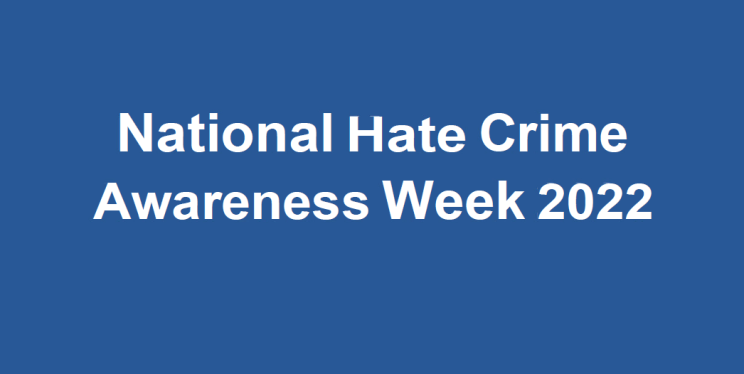Guest blog: Hate Crime Awareness Week 2022

As part of National Hate Crime Awareness Week, we spoke to Kostas Panagiotou from VOCAS about hate crime and how victims are supported.
Please can you introduce yourself, explain a bit about your role and what VOCAS does
“I’m Kostas Panagiotou and I’m the Service Manager of VOCAS, which stands for Victims of Crime Advocacy. I coordinate a team of advocates who help victims of crime, including hate crime.
“Our role is to provide an enhanced service to those victims of crime who feel they need it, either because they feel their voice is not heard or because they want access to more information to fully understand their rights and options.”
What is a hate crime?
“A hate crime is any criminal offence that is perceived by the victim or any other person, to be motivated by hostility or prejudice based on a person’s gender (including misogyny), race, religion, sexual orientation, disability and transgender instead of something they have done, the result of a disagreement or being in the wrong place at the wrong time.”
How does hate crime impact a victim?
“We can change and adapt our behaviour to avoid being targeted and victimised, but we can’t change who we are! So it has long term effects on the victim’s life, as they often feel targeted, made to feel unwelcome and scapegoated.”
What support is available to victims of hate crime? Where should they go to access support?
“There are various places where victims can go for support; the police is a good place to start as they take hate crimes seriously. If you feel that you can’t report or talk directly to the police, for whatever reason, there are still many options available such as Victim Support, SARI or VOCAS.
“As previously mentioned, VOCAS will provide an enhanced advocacy service if you feel that you need to talk in confidence to someone who understands about how race, sexuality, disability, mental health, age and/or exclusion can contribute to you struggling to have your voice heard or understanding your rights and options.”
If, as a bystander, I witness hate crime, what should I do?
“If you feel it is safe for you to do so, talk directly to the victim and offer help to report it to the police. You can also report directly to the police without getting involved with any of the parties in the incident you witnessed.
“If you decide to speak to the victim and they have reasons that make it difficult for them to speak directly to the police, explain to them that there are various other organisations they can talk to in confidence, such as those mentioned above. Do give them information about these organisations, or offer to talk to any of these organizations on their behalf if you feel confident doing so.”
